Technical Theatre and Stage Management and Design for Performance students explored the use of video in live performance contexts to amazing results.
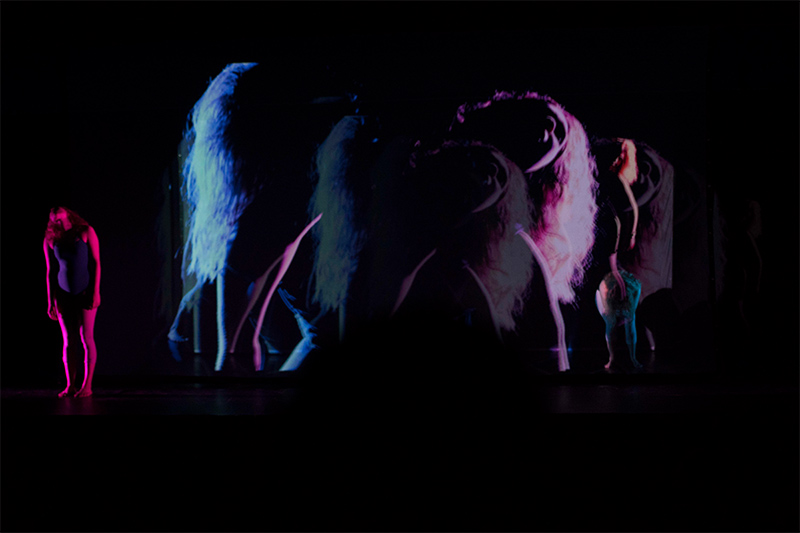
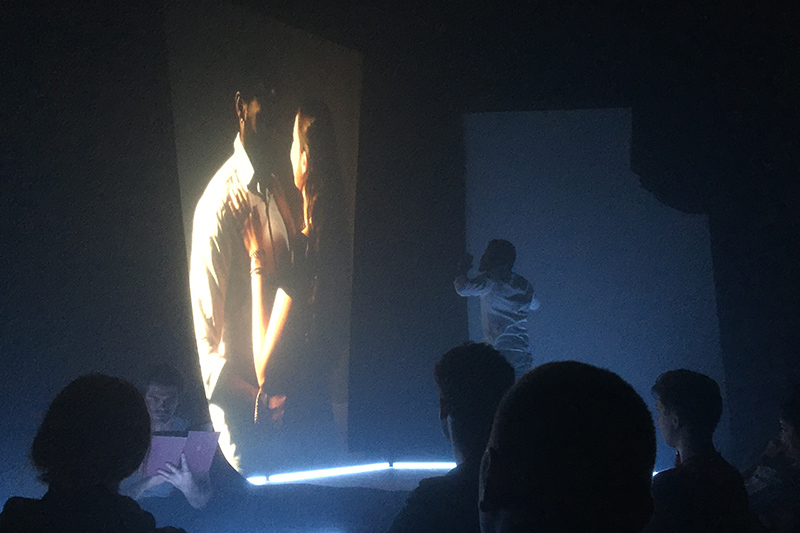
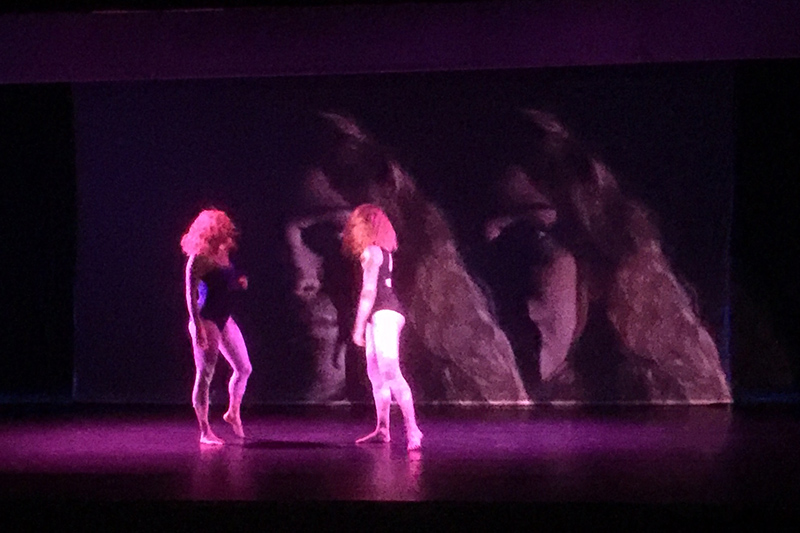
Above: Seven exciting explorations of how video can be utilised in live performance contexts were created.
The incorporation of video and projection is an increasingly prolific part of theatre making and design. Last week, the technical expertise and guidance provided by one of Australia’s leading specialists in video equipment solutions, TDC, supported NIDA students to create seven exciting explorations of how video can be utilised in live performance contexts. The presentations were a collaboration between second-year BFA (Technical Theatre and Stage Management) and third year BFA (Design for Performance) students.
Director of NIDA’s Centre for Technology, Production and Management Graham Henstock and NIDA’s Director of Design Practices Dr Julie Lynch thanked TDC for their incredibly generous support. Their provision of expert technical teachers, technical assistance and access to complex video systems enabled the student projects to take place.
Rose Mulcare, second year BFA (Technical Theatre and Stage Management) student worked on the project Bumpers, on sound, video programming and projection mapping.
‘Our piece was a comedic story about a reluctant tech worker called in to do a bump out shift, who brings video game elements into his boring world to keep himself entertained while he works,’ she explained. ‘We used two projectors, front and top down, to map projection of animated video game scenery and characters to ourset for the real world character to interact with.
‘A lot of what we did was based around the idea of a character being able to directly respond to something in the space that was created using video projection, almost as though the video functions as another character. With the kinds of motion tracking technology being developed, it is entirely possible that in the future we will be able to create a similar project without any need for someone to push a button to get the video to respond, but instead have software that does this for us. This opens up a world of new and interesting ways that people can use video for live performances.’
Third year students from the Bachelor of Fine Arts (Design for Performance) course worked in teams with the TTSM cohort to create the projects.
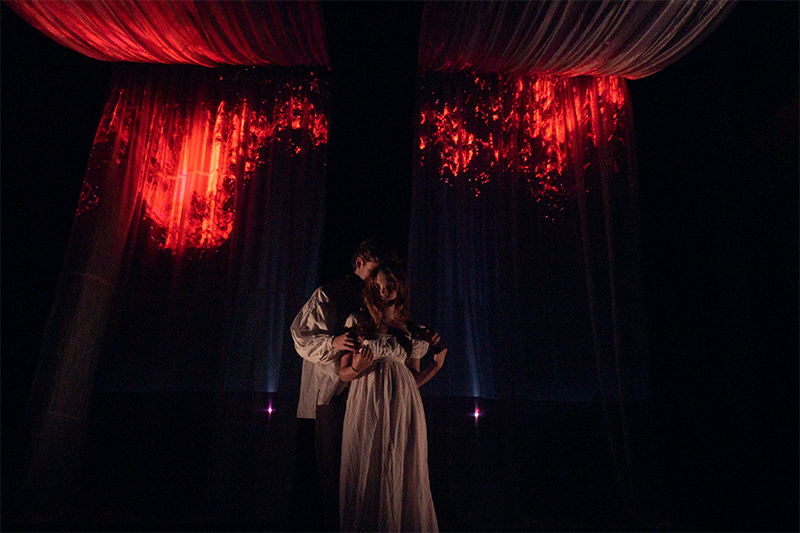
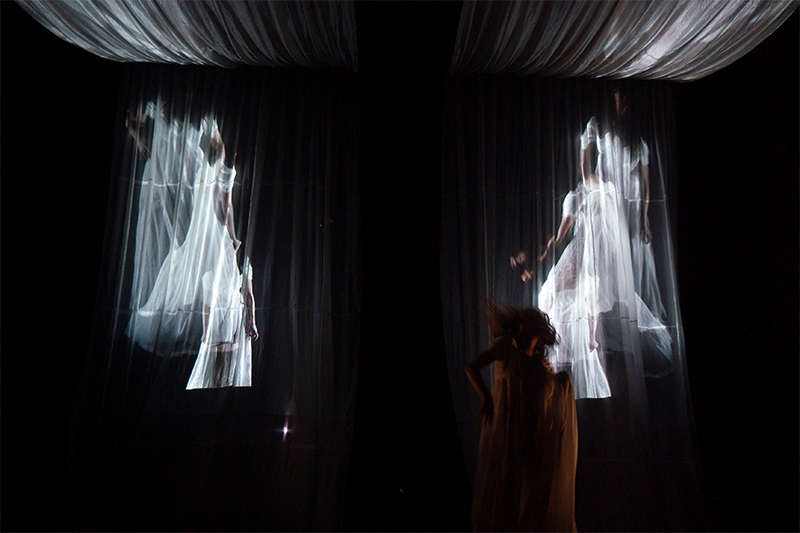
Angus Konsti worked on Toybox, which followed different childhood toys coming to life and explained that ‘We used the projection to comment on and explore a child’s imagination, by not using live performers only silhouettes.’
Hamish Elliot worked on Ophelia, a feminist retelling of Hamlet and Ophelia’s story. ‘We made Ophelia the focal point of the story, so instead of her taking her life she reclaimed it by exiting the relationship. We used a semi-translucent screen, and when we rear-projected it, the image spilled into a canopy hanging above, which had the effect of immersing the whole audience into the performance.’
‘Exploring the projecting surfaces was really eye opening, as the actors could interact with them as well and change the space. They could really affect the imagery by interacting with the screens.’
Daniel Herten, second year BFA (Technical Theatre and Stage Management) student, worked on the project Can You Remember where, a young girl looks under her bed and, while exploring the coloursand textures of her surroundings, discovers herself grown up andlooking back on her childhood. Daniel’s roles were in the creative development/conceptualisation phase as well as cinematographerand editor.
‘Projection on screens is so exciting,’ said Daniel. ‘Projection through space and people is the future. This project has shown me ourpotentialas emerging artists and technicians to develop creative methods toutilisemediums such as projection in new ways. It’s no longer about emulating a digital screen on a larger scale, but about the light travelling to create newimmersivespaces.
Third year Design for Performance student Stephanie Dunlop also worked on Can You Remember. ‘Our original idea was to project onto smoke but it became too hard to control so we came up with the idea of a wall of boxes and projected memories onto that, which distorted the images,’ she said.
‘The projections showed us how we can enhance a story and add an extra layer to it.’
All the students experienced the outstanding benefits of having an industry-leader such as TDC support the project. ‘We wouldn’t have been able to achieve what we did without the technology that TDC provided, especially the two projectors and lenses that we needed in our performance space,’ said Rose. ‘We also used a media server called WATCHOUT, and without the advice they gave us on the use of this, our projection mapping wouldn’t have worked.’
Daniel said that TDC advice and support was essential, especially when ‘taking an initial artistic vision and shaping it into a tangiblepiece of live performance. Their technical expertise has allowed us to produce our desired effects preciselyand with ease.’
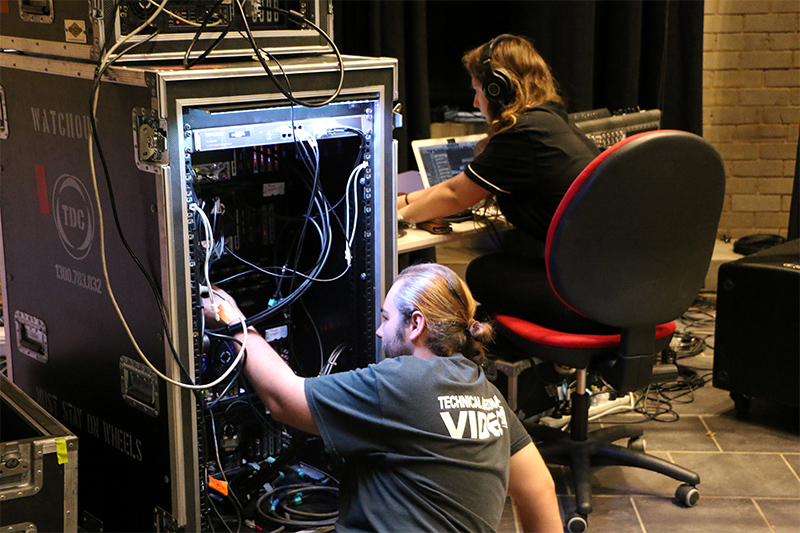
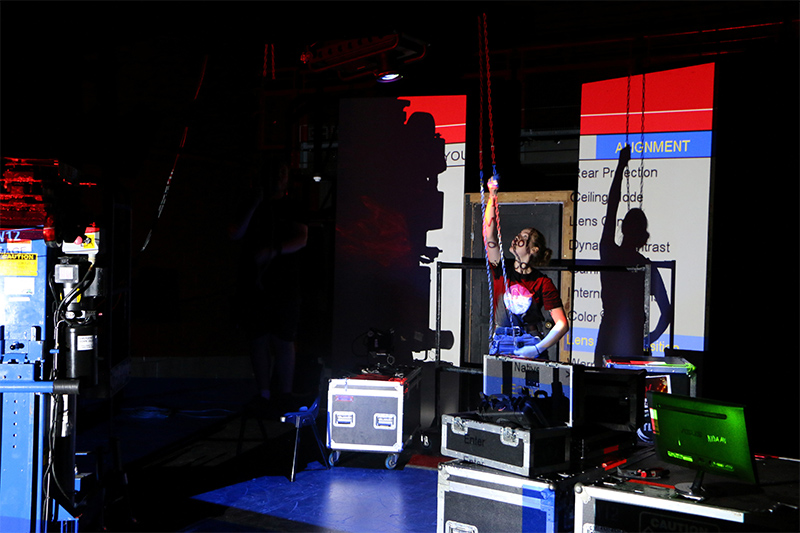
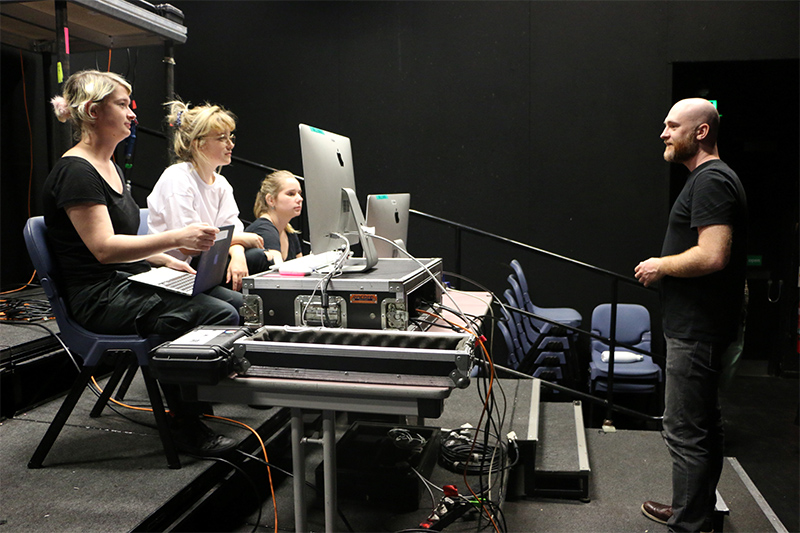
Above: The technical expertise and guidance provided by one of Australia’s leading specialists in video equipment solutions, TDC, supported NIDA students.
‘The whole project was very collaborative from the beginning, we all contributed to the outcome from the beginning to the end. It was great to know what is possible, so that you don’t limit yourself in your design ideas,’ said Stephanie. ‘Getting the knowledge first-hand from the experts at TDC, who know it so deeply, really helped us to understand it.’
Applications open for NIDA’s Bachelor of Fine Arts (Technical Theatre and Stage Management) and Bachelor of Fine Arts (Design for Performance) course on 1 July 2019. To register your interest in any NIDA courses and for information about auditions, visitnida.edu.au.
Come to the free NIDA Open Day on Saturday 15 June. See a show for free, hear from the experts, go backstage and meet alumni. Register now: nida.edu.au/open-day.

